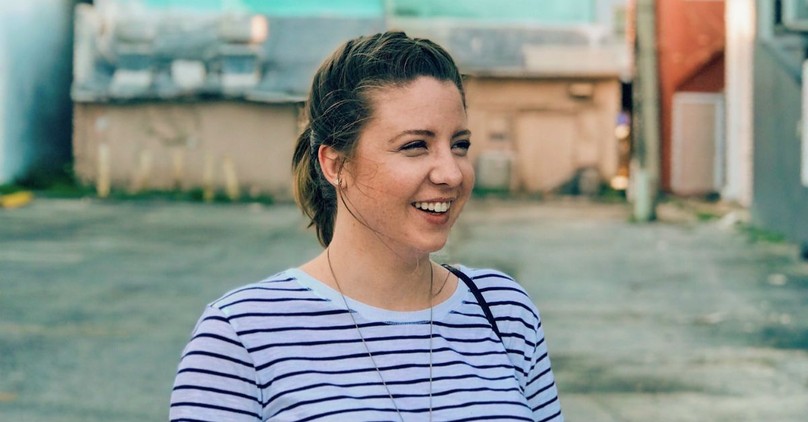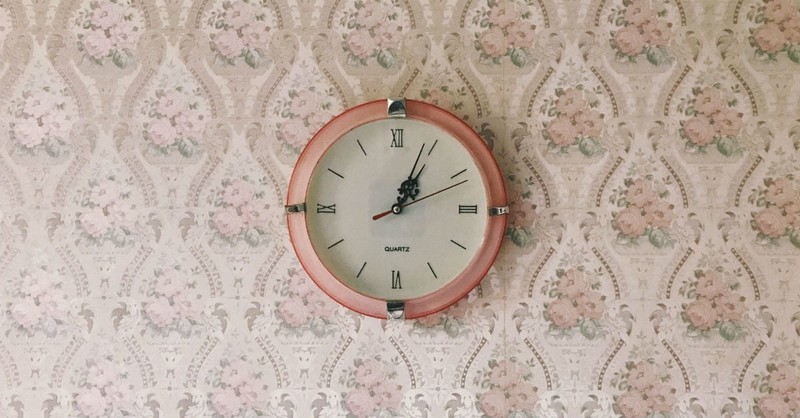
At least once a day, I find myself scrolling through posts on Facebook looking for...something. Here’s the problem: I don’t know what I’m looking for, but I itch to be entertained. Maybe by a juicy bit of internet outrage? A snappy food video? Cats in costume?
Often while I’m wasting my time, my children are fighting, and I ignore my husband and our unpaid bills. But as much as I know my family needs my attention, it’s hard to stop scrolling. I get easily distracted by social media, silly games, and the internet in general. But to my relief, over the past few years I’ve stopped feeling so out of control.
What happened? The path forward surprised even me—because it didn’t involve perfect self-control.
Here are three of my “Aha!” moments that will help all of us break the hold that screen time has over us.
Photo Credit: Unsplash

1. Bad habits often come from good desires.
Back when my kids were little, I used to spend a good hour and a half every morning reading advice columns online. Ignoring the dirty dishes and my kids wandering around in dirty diapers, I’d feel increasingly slovenly as the morning wore on. The worse I felt, the longer I stalled.
Then one morning, opening Dear Abby, I wondered: What am I getting out of these advice columns?
It makes me feel loved, I thought.
Here’s why: I adore advice columns. They’re gossipy and instructive; even more importantly, they’re easy and fun.
Photo Credit: Unsplash

What desire are you trying to meet with this habit?
I was homeschooling a preschooler and chasing after a baby at the time. Very little about my life was easy or fun. Starting my day out with something I loved helped me face that hardness. Realizing that helped me see my terrible habit differently. Rather than a lazy, good-for-nothing mother, I saw a struggling woman. Of course, spending the morning on advice columns wasn’t helping my struggle. But the yearning itself wasn’t bad.
It’s worth asking yourself: what are you getting out of endless social media scans? Is it a sense of community? A way of expressing yourself? Relaxation? Escape?
Be honest (and kind). Rather than standing in judgement of yourself, ask God to help you see your yearning. I suspect that whatever is fueling your bad habits is, at its root, a good desire.
Photo Credit: Unsplash

2. Quitting alltogether might not last.
I wish I could tell you that the day I realized I needed to take better care of myself, I stopped reading advice columns. But I wasn’t ready to stop. It’s just this one thing, I thought. Can’t I enjoy this one thing?
My responsible brain tutted. It’s hours of things, not one.
But I knew if I forced myself to quit cold-turkey I wouldn’t follow through. So I came up with a compromise. I could read one or two advice columns in the morning. Not thirty.
Photo Credit: Unsplash

What limits can help reduce constant distractions?
It’s okay to treat yourself in the morning, but you don’t feel better when you go overboard, I’d think as I felt tempted to keep scrolling. I still spent too much time on advice columns. But the horrid cycle of procrastination and shame gradually disappeared.
The longer I’ve paid attention to my own yearnings, and given myself permission to indulge them with limits, the easier it has become to make better choices.
I play silly games—but keep them off my phone. I scroll through Facebook but eliminate notifications so I’m not constantly distracted. And I only make those rules when I’m really convinced I’ll be happier with limits.
I used to think only complete self-control would help me kick my distraction addictions. But now I see that accepting my own frailty and making allowances for it is a much kinder and more effective approach.
Photo Credit: Unsplash

3. Distraction is easier, but real self-care is better.
Distractions are escapes: escapes from our fears, our shame, and our overwhelmed lives. If we’re going live more wisely, we have to stop running from them.
A lot of people talk about self-care as if it’s only spa days and manicures. In my view, self-care is about slowly and intentionally building a life that doesn’t drive us crazy. Actual self-care is hard. It takes practice and real bravery.
For example: it was a lot easier for me to lock myself in the bathroom at random moments to play Candy Crush then to tell my husband I needed his support to exercise every day. It was way easier to feel ashamed about wasting my time than to give myself permission to rest.
Photo Credit: Unsplash

What do you need to engage in life, rather than escape?
Eating to nourish my body, getting enough sleep, living at a reasonable pace and talking to myself kindly is real self-care. It’s not by gritting our teeth and trying harder that we’ll finally spend our time productively. No—the real cure for our distractions is passionate engagement with our imperfect lives.
I used to think I was lazy, but the truth was more complicated. I yearned for real rest, real self-love, but settled for thin substitutes instead.
That’s understandable: learning how to care for ourselves is hard. It takes practice and a lot of kindness.
Photo Credit: Unsplash

Real change happens in Christ.
If you feel like your bad internet habits suck your time and self-esteem away, you’re not alone, you’re not lazy, and you’re definitely not beyond help. Only by digging underneath your distractions, accepting your foibles, and kindly learning how to feed yourself better activities will you really change.
Here’s the good news: the real source of power to change our lives in Christ, not us. He already knows that us trying harder is a terrible recipe for success. Instead of asking us to pull ourselves up by our own bootstraps, he promises power to transform us from the inside out. With his help, we can learn to actually nourish ourselves, and joyfully live our lives.
Heather Caliri is a writer from San Diego who uses tiny, joyful yeses to free herself from anxiety. Tired of anxiety controlling your life? Try her mini-course, “Five Tiny Ideas for Managing Anxiety," for free here.
Photo Credit: Unsplash
Originally published Wednesday, 03 April 2019.



